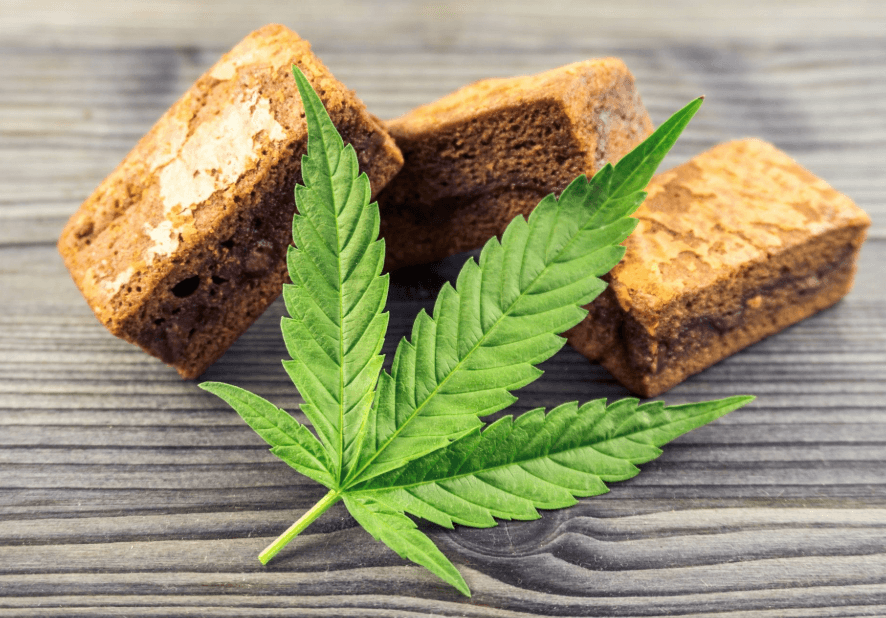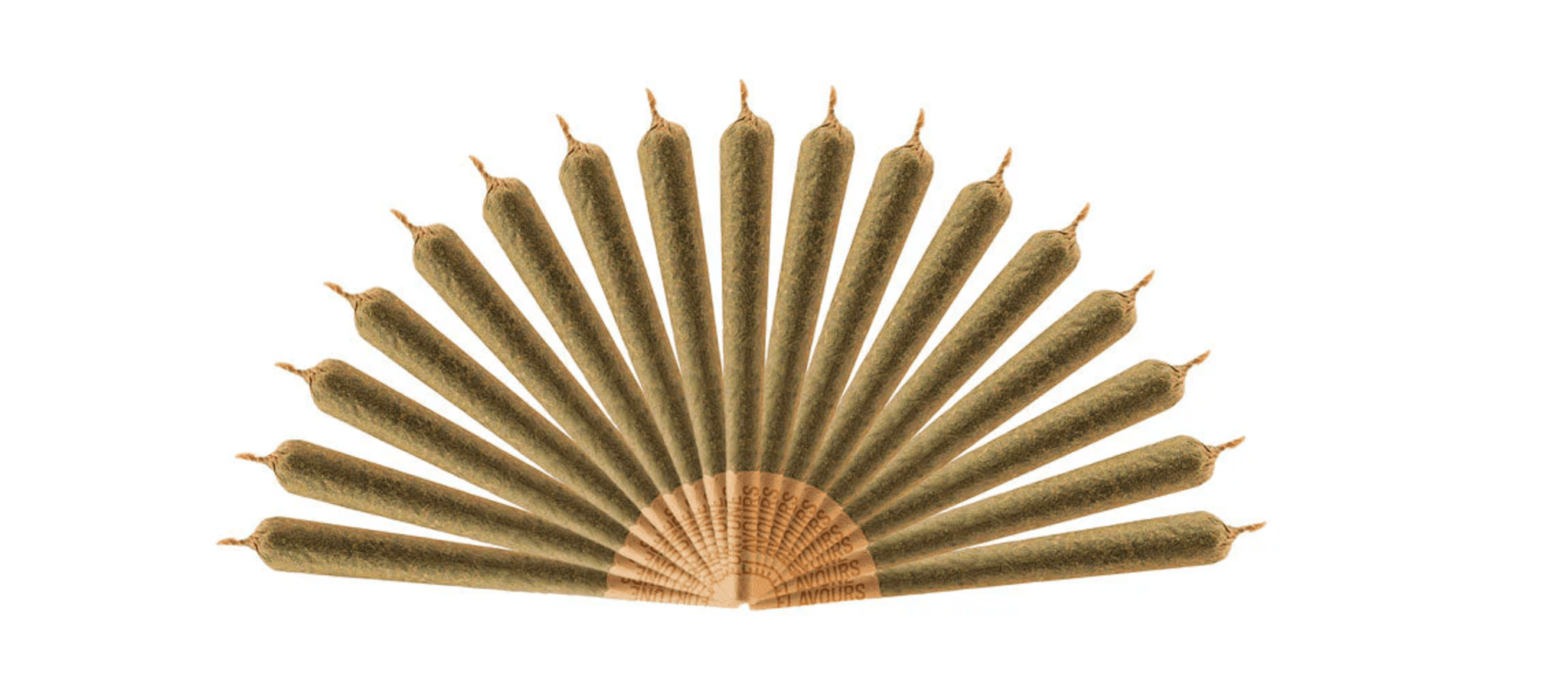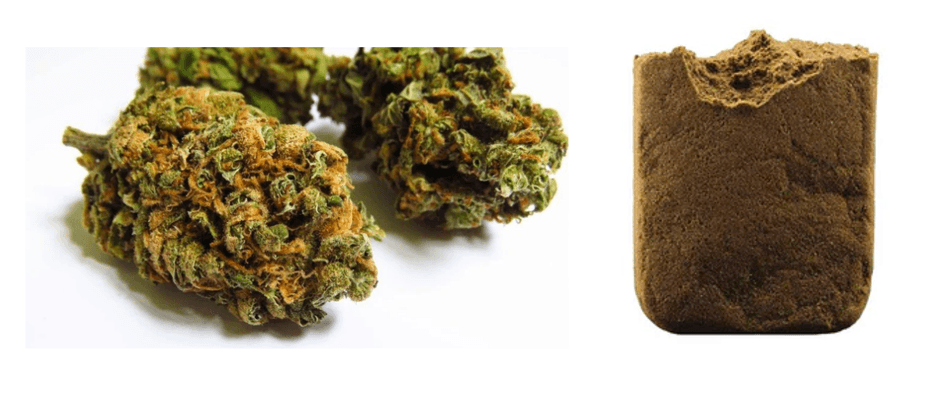Cannabidiol (CBD) cancer research is a relatively new area of study. Its more intoxicating relative, marijuana has long been associated with treating chemotherapy-related symptoms, especially in the U.S.
Many chemo patients say it has positive effects on their nausea. There are also patients who have found it helpful in treating the neuropathic (nerve-ending) pain that can sometimes occur from either cancer or chemo-related symptoms.
Tetrahydrocannabinol (THC), the compound that gets you stoned, naturally occurs in large quantities in marijuana. Of course, CBD and other cannabinoids are also present in this strain in small quantities. Whereas, the hemp strain of the cannabis plant holds a much, much higher proportion of CBD and other cannabinoids while only containing trace amounts of THC.
CBD vs. THC
Some research has been conducted into the efficacy of THC in the treatment of cancer, cancer treatment-related symptoms and cancer prevention. Similarly, some studies on CBD’s effects on the same areas are also progressing.
However, research conducted thus far has offered up conflicting results. For instance, one study conducted in 2010 on mice, suggested that THC actually suppressed the immune system. So, despite THC sometimes proving effective in treating nausea and pain associated with cancer treatment, it may not help in preventing cancer cells from growing in the body.
On the other hand, a couple of studies have indicated CBD’s potential to reduce the proliferation of cancer cells in certain types of cancer. More on these studies later. What does this tell us about the impact cannabinoids can have on cancer and chemotherapy-related symptoms? Firstly, it tells us that THC and CBD could potentially have very different effects. So, what’s their impact when they’re isolated from each other, and what is their impact when they work together? Secondly, it really tells us just how much we don’t know yet. There is so much research that still needs to be done.
Only a few studies on whether cannabinoids can help to treat cancer exist thus far. It’s also important for those of us not in the scientific community to bear in mind that any given medical study may only assess one very small theory or hypothesis. To actually ascertain whether a compound can be used as a medication, a plethora of studies on different aspects of disease-compound interaction have to be tested.
Read our Similar blog on: Does CBD Have THC?
CBD Cancer Further Research
For instance, some areas for further research will most likely include:
- Assessment of CBD cancer treatment in conjunction with other cannabinoids like THC.
- Assessment of Cannabinoids isolated from each other.
- Effective CBD cancer dosage.
- Administration techniques and their effects
- How specific types of cancer react to CBD
- How other chemotherapy drugs and cancer treatments interact with CBD.
- CBD Skin Cancer Studies
CBD Research
Let’s take a deeper look at the CBD cannabinoid. In recent years, it’s become something of a superstar in the health and wellness communities. Fans of the compound use it as either a health supplement or to target specific issues that CBD purportedly helps with.
Some of these are mental health-related; stress, insomnia, anxiety and general wellbeing. While some of these issues skew towards the physical like cluster headaches arthritis, multiple sclerosis (MS), Parkinson’s disease, Alzheimer’s disease and epilepsy. It’s important to note, that although people may use CBD to help alleviate symptoms of some of these conditions on the strength of some positive studies; the only CBD medication approved anywhere in the world is Epidolex. This U.S.-approved drug is an anti-seizure medication for epilepsy.
In certain evaluations, mainly conducted on mice and rat subjects, CBD showed both antioxidant and anti-inflammatory effects. There is also another well-regarded study. It indicates that CBD treats both neuropathic pain and inflammation. Once again, more research needs to be done. However, we are beginning to see studies that corroborate each other which is very positive indeed.
CBD and Cancer Research—Some Positive Studies
We’ve talked a lot about what we don’t know about CBD and cancer research, but that shouldn’t spell doom and gloom on CBD’s potential to help cancer. There is a growing body of evidence that has indicated reduced tumour growth, reduced multiplication of cancer cells and the invasion of cancer cells and malignant tumours.
Here is some of the most promising research over the last decade:
- 2010— This study by the Breast Cancer Research and Treatment Journal found that CBD could significantly reduce breast cancer cell proliferation and invasion in metastatic breast cancer.
- 2014— This study indicated that cannabinoids showed promise in treating gliomas. These are a type of tumour that occurs in the brain and the spinal cord.
- 2014— This study showed that CBD inhibited the spread of colorectal cancer cells.
- 2019— Another study on CBD’s interaction with glioblastoma cells. It showed that it could make radiation reduce cells more effectively and provoke cell death.
- 2019— This study focused on cannabinoids interaction with pancreatic cancer; showing it slowed tumour growth and invasion.
This is a small selection of the growing number of studies evaluating CBD’s potential in treating cancer. Other research has indicated that CBD might also perhaps increase the potency of certain cancer treatments and drugs. Yet again we must reiterate, there is still so much further to go in this research. Even if people are using CBD as part of a treatment plan, it shouldn’t be considered a cancer treatment.
CBD as a Complementary Treatment
There are a lot more instances of CBD and other cannabinoids being used as complementary therapy. Mainly to ease the symptoms presented by cancer drugs and cancer treatments. It’s long been thought that cannabinoids ease nausea and help improve reduced appetite.
We’ve already mentioned how some studies suggested that cannabinoids also eased neuropathic (nerve-ending) pain. A symptom that can also present both during and post invasive cancer treatments. CBD is also thought to have anti-anxiety and anti-inflammatory properties.
Drugs exist that treat chemo-related nausea; dronabinol and nabilone. These are synthetic cannabinoids modelled on THC.
A cannabinoid mouth spray drug called nabiximols is also available. It treats cancer pain and contains THC and CBD. This one has only European and Canadian approval. It’s not approved in the United States, but it is the subject of ongoing research.
If CBD cancer treatments, or even THC-based ones, are something you would like to look into consult your doctor. They should be able to tell you whether cannabinoids will interact with your medication. There is also the matter of THC being illegal. Although some people in Boris Johnson’s administration did indicate putting the use of THC as a treatment under review.
Cannabis Oil and Cancer
It would seem counterintuitive to recommend smoking or vaping as a way to consume CBD and other cannabinoids. There are lots of ways you can choose to consume CBD and cannabis extracts. Edibles, teas and topicals but the most long-standing way to consume cannabinoids are by using cannabis oil or CBD oil.
These are easy to take. Also, in the event of nausea, putting them underneath the tongue is a fast-acting way for them to absorb. It also means they bypass the digestive tract and get to work straight away.
CBD Flower & oil cancer dosage hasn't yet been quantified. It really depends on what feels right to you. Also, the reasons why you are taking it. For severe symptoms, the idea would be that you use a very strong CBD oil. All CBD oils should give you the milligrams on the packaging.
Conclusion
It's clear that the cannabis plant has so much medical potential. However, we have far from unlocked all of her secrets. We really believe further CBD cancer research and CBD and Cancer-Treatment study will prove incredibly beneficial.
For now, we wait for medical and governmental policy to catch up with the idea that CBD is a very healthful compound. We truly hope this compound will eventually be able to help those suffering.
If you liked reading this, be sure to check our other blog: The Ultimate Guide to CBD



